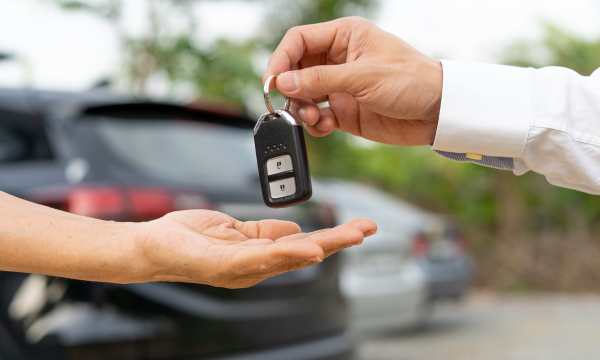City Life with Compact Cars: Navigating the Concrete Jungle
City life has its problems and needs, and traveling is one of the most important of them. Small cars are a convenient and fast means of transportation in busy urban centers.
This article discusses the pros and cons of compact cars for urban living, including how they are designed, how much gas they use, how easy they are to park, and their impact on the environment.
1. Construction and Mobility:
Compact cars are small and easy to park, making them ideal for city streets where space is limited. Because these cars have a shorter wheelbase and smaller size, they can easily maneuver through busy streets, alleys, and parking lots. Because small cars are so easy to drive, they can easily navigate the complex and unpredictable traffic patterns of cities.
The sleek design of compact cars also makes them more aerodynamic, meaning they use less gasoline and produce less pollution. Because compact cars are designed to be as fuel-efficient as possible, they are perfect for city dwellers who want to get to work faster every day.
2. Fuel Consumption:
Fuel savings are important in cities with stop-and-go traffic and short travel times. Because compact cars have smaller engines and lighter bodies, they get better gas mileage. Because they are lighter, they use less natural gas, making them an environmentally friendly option for city dwellers.
In addition, compact cars are good for the environment, and thanks to their fuel consumption, drivers save money. As the cost of gasoline changes, the financial benefits of driving a car that gets the most miles per gallon become more apparent to people who drive around town every day.
3. Advantages of Parking:
People always have trouble finding a parking spot in the city because there isn’t enough space for everyone. Compact cars have a clear advantage in this situation due to their smaller size. It is often easier to find parking spaces for smaller cars, allowing drivers to take advantage of even the smallest gaps between cars.
Parallel parking is a skill you’ll need a lot in the city, but smaller cars make it much easier. Their small size and strong cornering ability make it easier for drivers to get into tight parking spaces, making parking in busy cities less frustrating. The benefits of this parking space are not only time-saving but also less stressful driving.
4. The Effect on the Environment:
As cities deal with issues such as air quality and environmental protection, the car people choose becomes even more important. Compact cars help protect the environment because they have smaller engines and produce less pollution.
People are increasingly aware of climate change and the need for environmentally friendly travel options. Compact cars have a smaller ecological footprint. Governments and cities are encouraging people to buy environmentally friendly cars, and compact cars are a good choice for people who travel in cities and care about the environment.
5. Ownership Costs and Purchase Costs:
Because compact cars are generally cheaper than larger models, they are a good choice for people who live in cities. The upfront cost of buying a compact car is cheaper and owners usually don’t have to pay for things like gas and maintenance.
Additionally, insurance rates for small cars are often cheaper than insurance rates for larger cars. Because compact cars are affordable and have low running costs, they are a smart financial choice for city dwellers looking for a fast and cost-effective way to get around.
6. Technical Improvement:
New developments in automotive technology are making small cars more attractive to city dwellers. Many car companies are integrating the latest technology into their smaller models, such as improved safety systems, ways to connect to the internet, and engines that use less gas.
The rise of electric and hybrid compact cars also addresses the environmental problems caused by standard combustion engines. Electric compact cars in particular offer zero-emission options for city dwellers concerned about the environment.
7. The Future of Compact Cars in Urban Living:
As more people around the world move to cities, small cars will play a bigger role in urban life. Compact cars that meet the changing needs of city dwellers are likely to continue to improve, thanks to a continued focus on efficiency and technological advancements.
Self-driving cars are another new technology that could change the way people travel in cities. The use of small, self-driving cars can make transportation more efficient and safer, further easing traffic pressure and improving city life in general.
Conclusion
Compact cars are an efficient and useful solution to the problems of city life. These cars are designed to handle the unique challenges of driving in the concrete jungle. They park easily, use very little petrol, and have a low impact on the environment. As technology continues to develop, compact cars could become an even more important part of urban transportation in the future. They are an environmentally friendly and practical option for people who want to make the most of their daily travels in busy cities.
FAQs
1. Why are small cars considered beneficial for urban living?
Because compact cars are smaller and can corner more easily, they are ideal for driving through tight urban areas, busy streets, and narrow alleys. Their sleek shape benefits aerodynamics, making them easy to maneuver in city traffic.
2. How can small cars help reduce fuel consumption?
Most compact cars have smaller engines and bodies made of lighter materials, making them lighter. This feature helps these cars consume less gasoline, so people living in cities with stop-and-go traffic and short trips can save money and help the environment.
3. What are the advantages of small cars for city parking?
In busy cities, compact cars can find a parking space more easily because they are smaller. The fact that they fit into tight spaces, especially when parking sideways, is a big plus and saves time and stress when parking in the city.
4. What damage do small cars do to the environment?
Small cars leave a smaller carbon footprint than larger cars, which is good for the environment. With less pollution and a focus on fuel efficiency, compact cars fit in with the growing awareness of climate change and the need for green transportation options to get around cities.
5. Are small cars cheaper than large cars?
Indeed, small cars are generally cheaper than larger cars. It is cheaper to buy and there are usually fewer costs such as gas, maintenance, and insurance. Their low price makes compact cars a good choice for city dwellers who want to travel affordably.
6. How will technological changes impact small cars for urban living?
New technology is making small cars more attractive by adding features such as better safety systems, ways to connect to the Internet, and engines that use less gas. The proliferation of electric and hybrid small cars offers people who care about the environment an option that does not pollute the environment.
 Tips for a Smooth Car Financing Journey
Tips for a Smooth Car Financing Journey
When you buy a car, obtaining financing is an important part of the process. Making smart financing […]
More The Ultimate Sports Car Buying Guide
The Ultimate Sports Car Buying Guide
For people who love cars, there’s no denying the appeal of fast cars. Many people’s dreams come […]
More The Comprehensive Guide to Car Leasing
The Comprehensive Guide to Car Leasing
Car leasing is becoming increasingly popular for private individuals and companies who want to drive a new […]
More